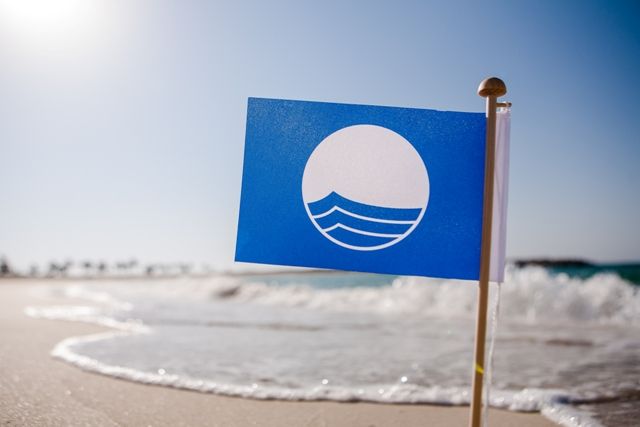Last Updated on May 15, 2023 by Celeste.
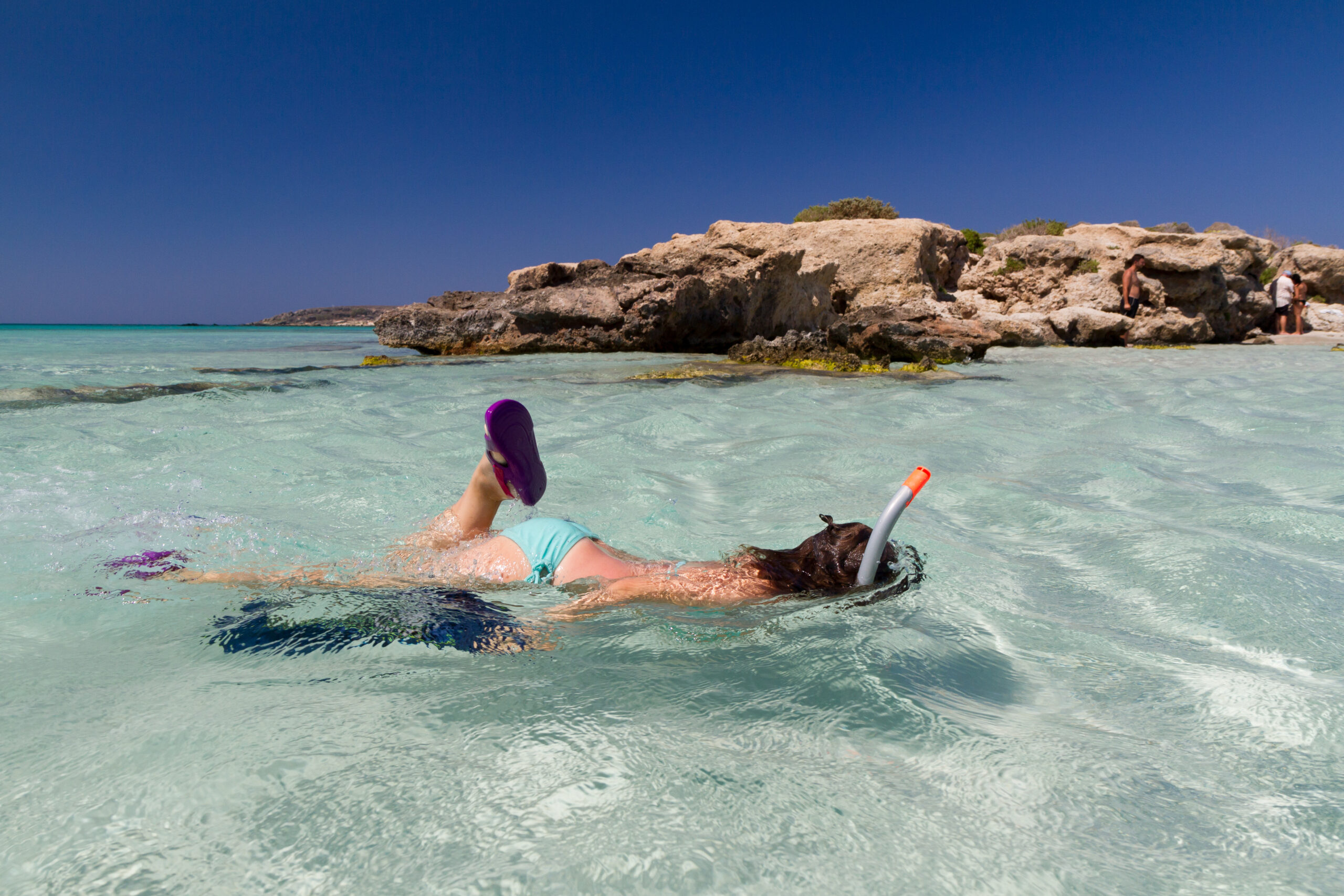
Blue Flag beaches in Greece are more than ever this year. In 2023, the number went up again with 617 in total – up from 581 in 2022. According to the 2023 Blue Flag quality award list for beaches, marinas and tourism boats, released by the Hellenic Society for the Protection of Nature (EEPF), Greece now is second in the world.
Blue Flag Beaches in Greece
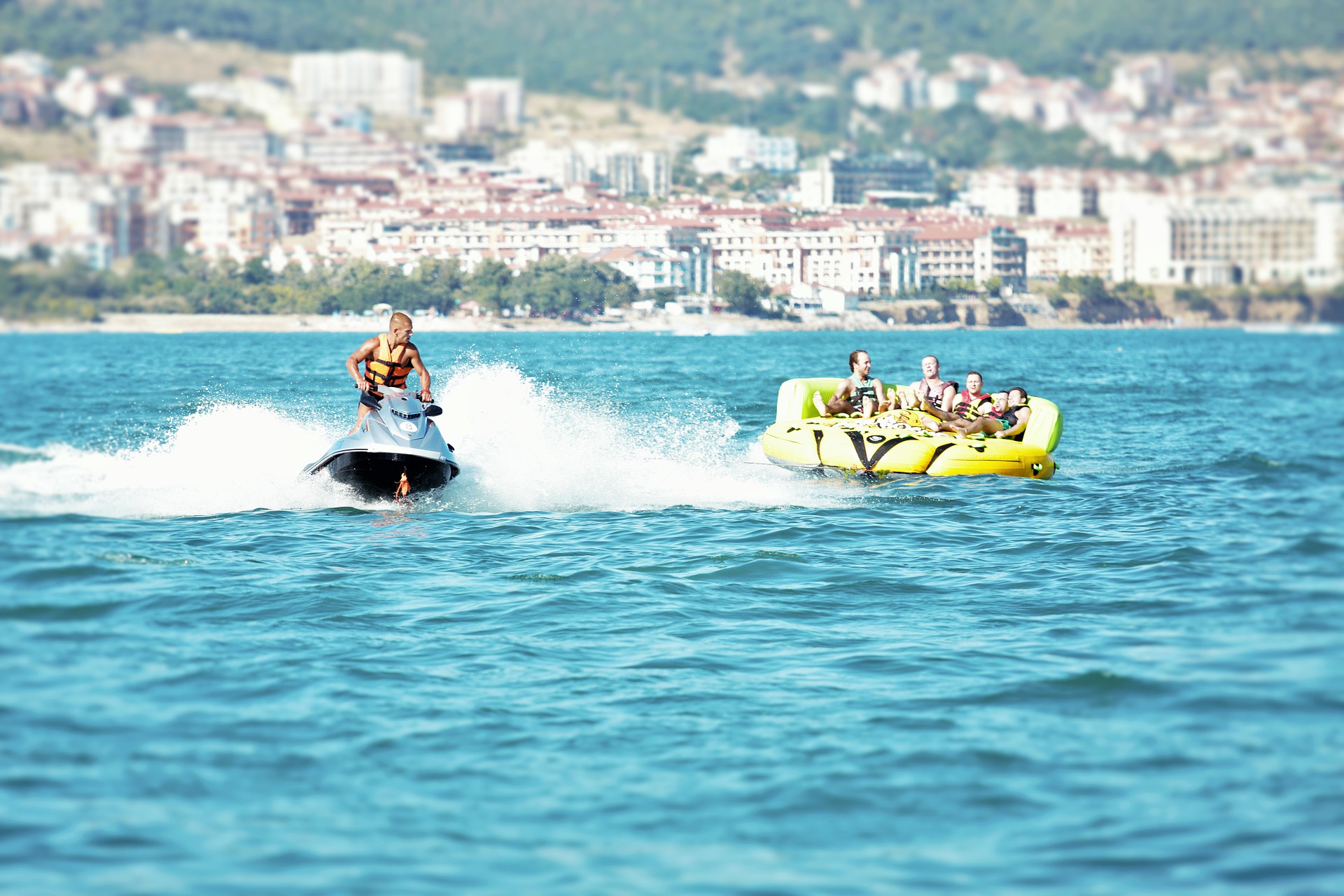
Greece once again ranks second after Spain worldwide among 52 countries with 617 of its beaches, 18 marinas, and 6 tourism boats getting the Blue Flag label, one of the world’s most recognized voluntary eco-labels. This is the first time Greece’s Blue Flag beaches exceed 600, which corresponds to 15 percent of the total number of beaches awarded by the program this year.
Best Beaches in Greece
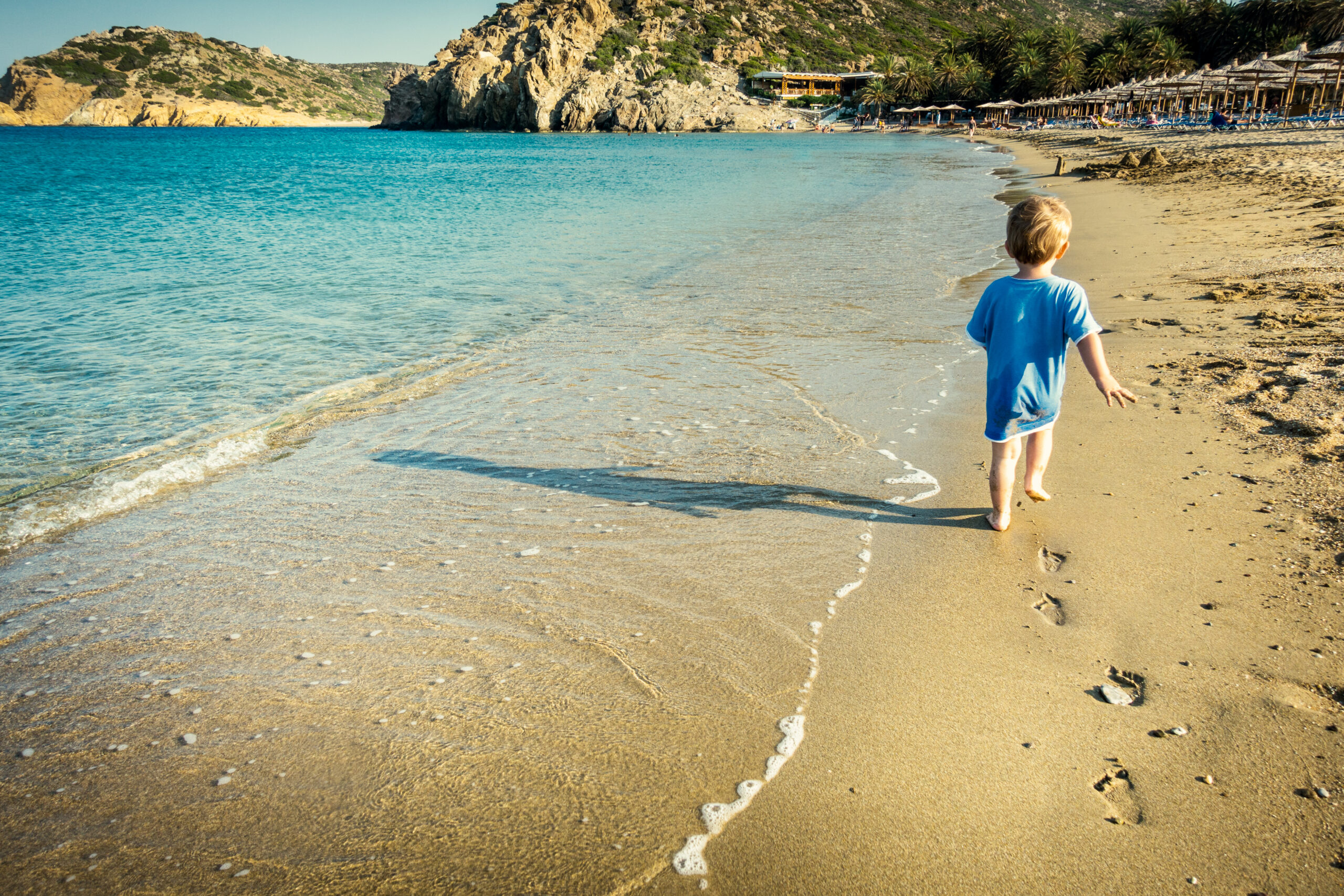
Halkidiki is once again Greece’s Blue Flag champion, as the destination boasts a total of 94 beaches with the prestigious Blue Flag eco-label. Another champion is Crete beaches it features more than 128 perfect beaches, the most are in the Lassithi region, on the East coast of the largest Greek islands.
But even in Attica, the larger Athens’ area, you can find 18 Blue Flag-awarded beaches. Some of these are on the Athens Coast, relatively near the city. That means that you can combine a visit to Athens with a beach vacation at the Athenian Riviera.
Here is a list of some of the best beaches in Greece awarded with the prestigious Blue Flag award:
- Thessaloniki / Halkidiki region with 87 Blue Flags
- Rhodes 55 Blue Flags
- Crete: Lassithi (41), Chania (36), Heraklion (31) and Rethymnon (20).
- Other top 10 Blue Flag beaches in Greece are in Attica (18), Kefalonia (17), and Lesvos (17).
Click here for a complete list of Greece’s 2023 Blue Flag quality award list (in Greek and English).
The Blue Flag Award
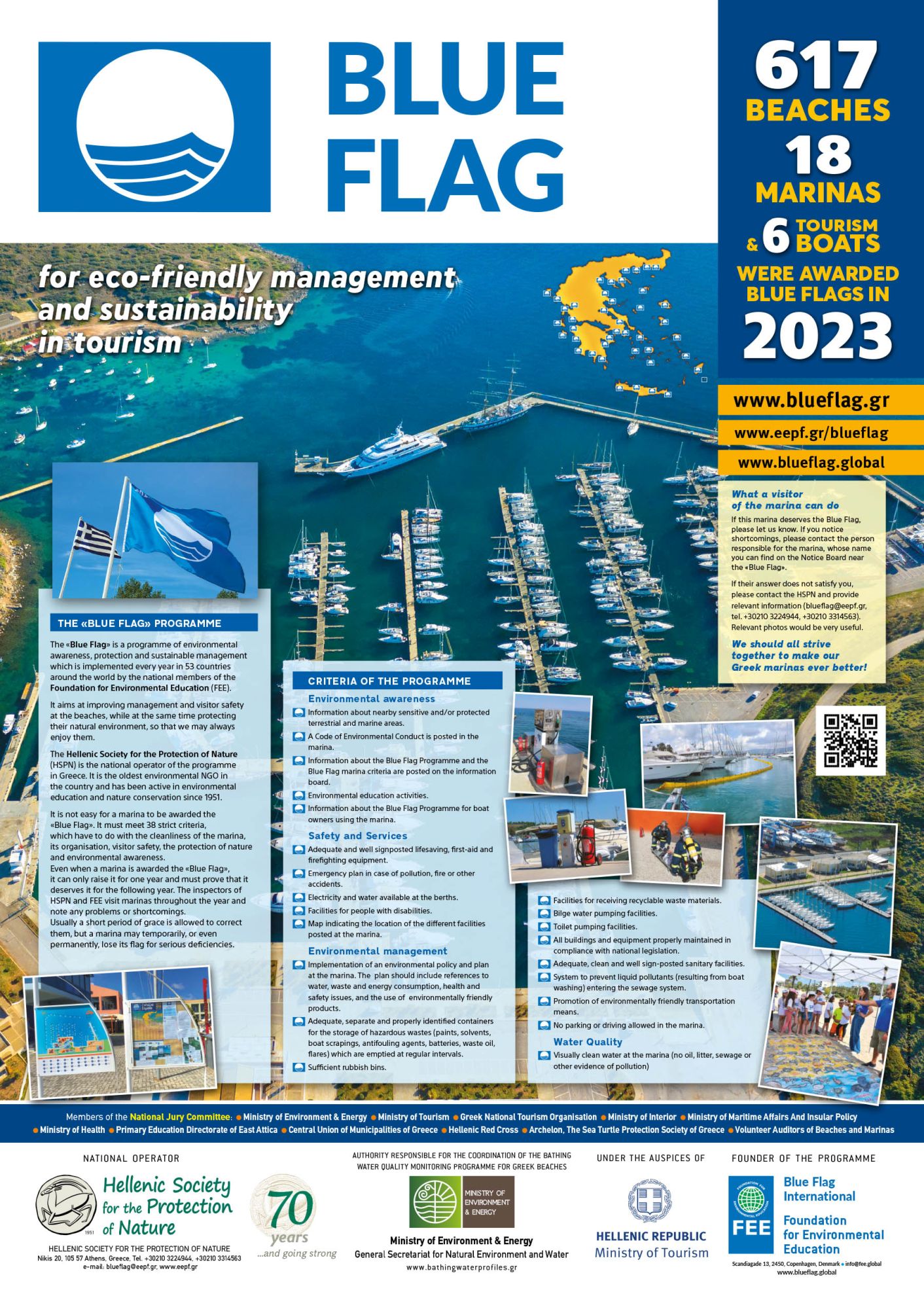
The iconic Blue Flag is a world-renowned voluntary eco-label, awarded to beaches, marinas, and sustainable boating tourism operators, trusted by millions around the globe. The program is operated under the auspices of the Foundation for Environmental Education (FEE) and is headquartered in Copenhagen, Denmark. The Blue Flag award has a duration of one year.
The Blue Flag Program initially started in France in 1985 and began operating in Europe in 1987. The program went global after 2001 and today has an ever-increasing number of countries participating.
Over the years, the Blue Flag has become a highly respected and recognised eco-label working to bring together the tourism and environmental sectors at local, regional and national levels.
In Greece, EEPF signed a cooperation protocol with the Tourism Ministry in 2013, officially cementing common goals that included increasing the number of Greek Blue Flag coasts, improving the level of offered services there and generally improving the quality of the tourism product.
However, EEPF and FEE inspectors often make surprise visits to the country’s award-winning beaches between July and August and marinas all year round in order to check whether the criteria of the Blue Flag program are met.
Famous Beaches in Greece
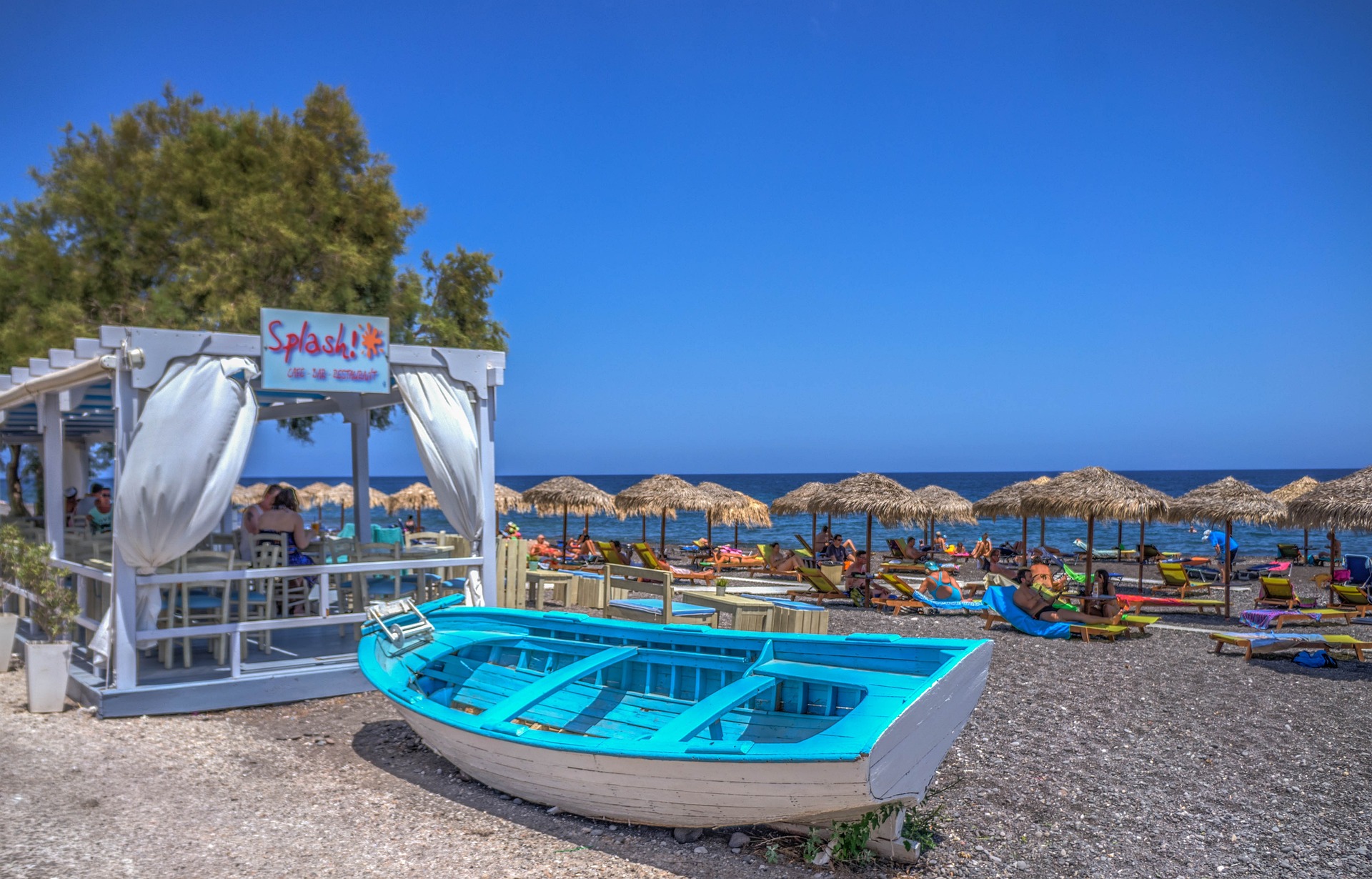
If you want to read more about the best beaches in Greece, take a look at my post about Beaches in Halkidiki, Beaches in Athens, Beaches in Milos, Beaches in Zante, the beach of Elafonissos and the amazing world-famous beaches of Crete at Preveli, Balos, Elafonissi and Falasarna. For useful tips and advice on visiting the beaches in Athens and the rest of Greece with kids, take a look at my post about a beach holiday with kids in Greece.
What is your favorite family-friendly beach in Greece? Leave us a comment with your personal recommendations!


